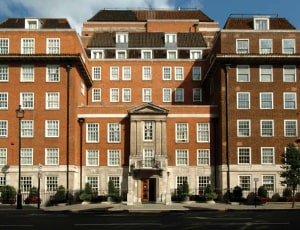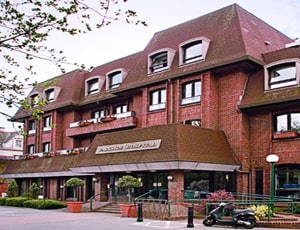Treatment cost

We, The London Clinic family, take pride in our reputation as a multi-disciplined healthcare facility. With skilled nurses and expert consultants, our medical teams are always focused to deliver the best individualized medical care. More than 1,000 nursing, clinical, and support staff are currently working with us to give our patients an extensive range of treatments. We use cutting-edge technologies to ensure a comprehensive range of healthcare services. Not only that, in order to make your stay with us comfortable enough, we equip our patient bedrooms with:
Patients from all over the world fly to us to get their procedures done by our specialist doctors, which is why we also provide our patient's concierge services. Our concierge services include:
The London Clinic has a zero-tolerance policy when it comes to hygiene and cleanliness. Our dedicated housekeeping team cleans every room every day between 8.00 am and 5.00 pm. They are also entitled to supply fresh towels every day and clean the rooms properly between patients.
We also have a day surgery unit based on the third floor at 20 Devonshire Place to make sure a hassle-free surgery as well as post-surgery care for our patients. Our cancer care unit at 22 Devonshire Place is also among our key services.


Apart from in-detail treatment procedures available, Parkside Private Hospital located in London, United Kingdom has a wide variety of facilities available for International Patients. Some of the facilities which are provided by them are Accommodation, Airport Transfer, Choice of Meals, Interpreter, SIM, TV inside room. Also listed below are some of the most prominent infrastructural details:
Brachial plexus injury is a medical emergency caused due to an injury to the brachial plexus group of nerves that sends signals from your spine to your shoulder, arm, and hand. These nerves control and administer feelings in the muscles of the shoulder, elbow, wrist, hand, and arm. This damage is also known as brachial plexopathy. Brachial plexus injury appears when these nerves are compressed, stretched, or in the most serious case, ripped apart from the spinal cord. Some brachial plexus injuries known as stingers or burners are inconsequential and will completely recover in a few weeks. However, other brachial plexus injuries are severe enough and may cause some permanent impairment in the arm. In severe conditions, it can paralyze your arm, with a failure of function and sensation.
Brachial plexus injury results when the brachial nerves are damaged by excessive stretching, pressure, or cutting. Stretching can occur when your shoulder is forced down while your neck stretches up and away from the injured shoulder such as during a motorcycle or a car accident. In case of a serious injury, the brachial nerve may rip off the spinal cord in the neck. This type of brachial plexus injury is classified as a traumatic brachial plexus injury. It may occur because of different reasons, including:
Brachial plexopathy may also result from exposure to radiation at the time of stereotactic radiosurgery or specific procedures such as stereotactic breast biopsy.
Symptoms of the brachial plexus injury depend on the seriousness of the injury. A minor injury can often occur during any contact sport and minor trauma when the brachial plexus nerves get stretched or compressed. Minor brachial plexus injury symptoms include the following:
More serious brachial plexus injury symptoms result when nerves are torn or ruptured. Such injuries may produce the following symptoms:
In case of childbirth brachial plexus injury, symptoms can be seen right after the birth of the child. These may include:
Some common types of surgical brachial plexus injury treatment include the following:
It is very hard to assess an exact recovery time after brachial plexus injury treatment due to the broad spectrum. How likely a spontaneous recovery depends on the type and severity of the injury.
In the case of surgery, nerve tissue grows very slowly, about an inch a month, so it can take a few years to assess the success of brachial plexus injury surgery. However, during the recovery period, patients are encouraged to keep their joints flexible by following an exercise schedule. The success rate of surgery is quite good but recovery time and success rate must be assessed on an individual basis.
Ask your healthcare adviser for the best multiple options and choose the one that meets your expectations
Different hospitals have different pricing policy when it comes to the cost of Brachial Plexus Injuries/Stereotactic Procedures in London. The top hospitals for Brachial Plexus Injuries/Stereotactic Procedures in London covers all the expenses related to the pre-surgery investigations of the candidate. Typically, the package cost of Brachial Plexus Injuries/Stereotactic Procedures in London includes the expenses related to the surgeon's fee, anesthesia, hospital, meals, nursing and ICU stay. Extended hospital stay, complications after the surgery or new diagnosis may affect the overall cost of Brachial Plexus Injuries/Stereotactic Procedures in London.
There are many hospitals across the country that offer Brachial Plexus Injuries/Stereotactic Procedures to international patients. The top hospitals for Brachial Plexus Injuries/Stereotactic Procedures in London include the following:
After discharge from the hospital, the patient has to stay for another 15 days in the country for complete recovery. During this time, the patient undergoes medical tests and consultations. this is to ensure that the treatment was successful and the patient us safe to return.
There are certain additional cost that the patient has to pay apart from the Brachial Plexus Injuries/Stereotactic Procedures cost. These are the chanrges for daily meals and hotel stay outside the hospital. The extra charges may vary from 55 USD.
It is possible for patients to opt for video telemedicine consultation before they come for Brachial Plexus Injuries/Stereotactic Procedures in London. The following are some of the best doctors for Brachial Plexus Injuries/Stereotactic Procedures in London who are available for video consultation:
Some of the most sought after doctors available for online video consultation for Brachial Plexus Injuries/Stereotactic Procedures in London are:
| Doctor Name | Cost | Book Appointment |
|---|---|---|
| Dr. Mohamed Abdalla | 250 | Book Now |
The average duration of stay at the hospital after Brachial Plexus Injuries/Stereotactic Procedures is about 3 Days for proper care and monitoring. During the recovery, the patient is carefully monitored and control tests are performed to see that everything is okay. If required, physiotherapy sessions are also planned during recovery in hospital.
Out of all the hospitals in London, there are about 2 Hospitals best hospitals for Brachial Plexus Injuries/Stereotactic Procedures in London. These hospitals have propoer infrastructure as well as offer good quality of services when it comes to Brachial Plexus Injuries/Stereotactic Procedures surgery. Apart from good services, the hospitals are known to follow all standard and legal guidelines as dictated by the local medical affairs body or organization.
Some of the most sought after doctors for Brachial Plexus Injuries/Stereotactic Procedures in London are: